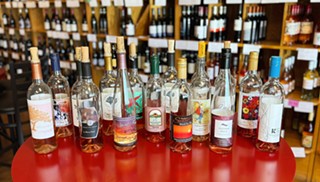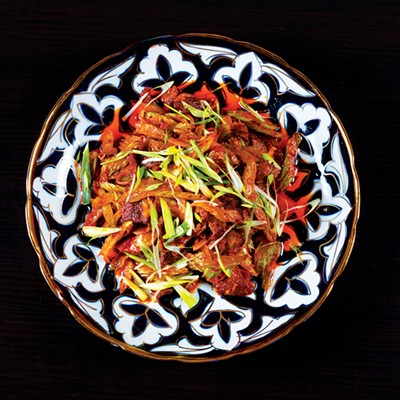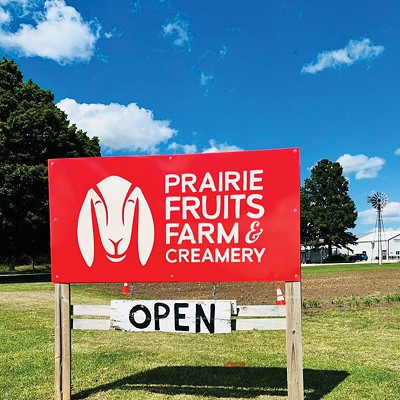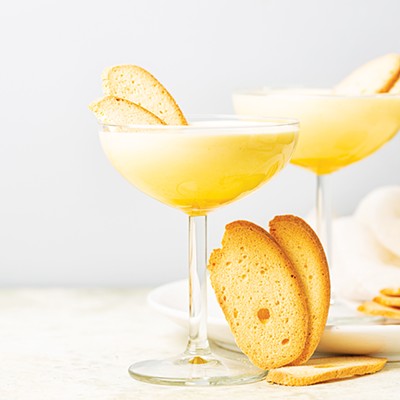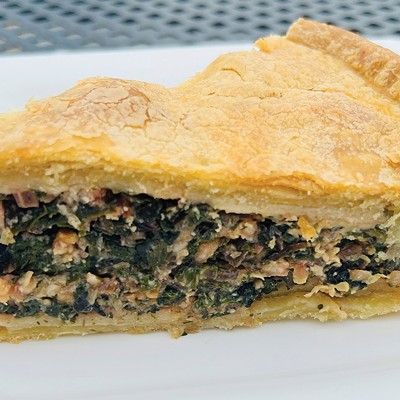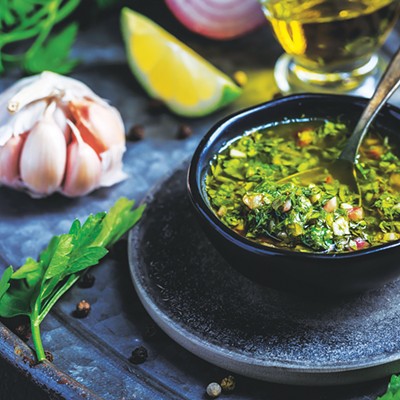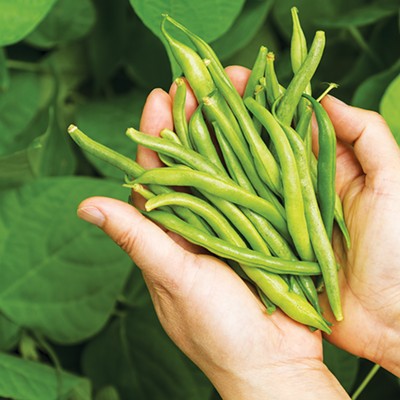I was recently asked to participate in a blind tasting of freshly bottled 2023 rosés. The wines ranged in hue from pale cherry to deep pink, and many were bursting with classic rosé aromas of juicy berries and watermelon, delicate florals and complex spicy notes. My notepad was dotted with hastily scribbled stars and exclamatory phrases such as, "Yummy! Lovely wine!" They ranged from bone dry to barley sweet and were made in a style consistent with traditional European rosés. The wines we tasted that day were not, however, from Provence or Rioja. They were all made here in Illinois, produced using 100% state-grown fruit.
Our task that day was to evaluate and select the wines that would be featured in this year's Signature Series Rosé. The program was born out of the Illinois Rosé Project, which was started in 2015 with state oenologist Bradley Beam in conjunction with the Illinois Grape Growers and Vintners Alliance. The project was born out of a desire to create a consistent, recognizable style of wine on which the state's industry could hang its hat, and which any winery in the state could be involved in, explained Lisa Ellis, executive director of the IGGVA. "Due to our varied climate from north to south in Illinois, it became clear that we needed to focus on a style rather than a particular variety." After extensive research, dry rosé was chosen to be the hallmark style of the state, and a year later, in 2016, dry rosé was officially designated the state wine of Illinois.
The timing was fortuitous. Dry rosé consumption has exploded in recent years, with sales in the U.S. increasing 1,433% from 2000 to 2020, according to bw166, a global market research firm for alcoholic beverages. What was once a niche category for wine lovers in the know became a force unto itself. Pink wine flooded the market to suit consumer demand and – quite frankly – some of it was not very good as some of the wines lacked the brightness and delicate fruit flavors that rosé lovers crave. Was the Illinois Rosé Project just another attempt to capitalize on a fad?
"I really hate chasing trends," said Eric White, winemaker at Galena Cellars Vineyard and Winery and IGGVA board member who joined me on this year's' blind tasting panel. "As soon as you develop a style and educate the consumer, the trend flips and you have to start all over. So, while the timing of the rosé trend was certainly helpful, this Rosé Project is really about embracing what Illinois grapes can do and let's use these local grapes to make the best wine possible. And if that turns out to be a rosé, so be it."
White explained that when he was working in California and making rosés in warmer climates, they always picked early in order to preserve the bright acidity that characterizes rosés. Unfortunately, that meant that they were often picking before the grapes had reached full flavor ripeness. "When I moved back home to Illinois," White said, he noticed that Midwest winemakers were fighting a "constant battle" against excessive acidity. "At some point I just decided to embrace it." Rather than emulate other regions' wines, White realized, Illinois needed to simply to "be itself," adding, "Rosé is where that really clicks."
In 2016, dry rosé was named as the official state wine style, and a year later the IGGVA created the Signature Series Program with funding assistance through a Specialty Crop Grant from the state Department of Agriculture. The wines must all be made entirely from fruit grown within Illinois with less than 24 grams per liter of residual sugar. They are selected each year by a panel of industry professionals.
"The rosé game has improved drastically in just a few short years," remarked Eduard Seitan, a sommelier and partner with One Off Hospitality Group in Chicago whose properties include Avec and The Publican. "There really is fantastic rosé coming out of Illinois and I can totally see why they're pushing that style of wine more than anything else." The biggest hurdle, Seitan explained, is getting consumers to set aside their preconceived notions that Midwestern wines can't compare to wines from more famous regions. Ultimately, pointed out Seitan, the most effective way to open a consumer's mind is by putting a glass in their hand and filling it with delicious, well-made wine.
Rosé is an easy way to edge out of your comfort zone and experiment with serious wines from a little closer to home. I will admit that I've been burned by some bad Illinois wine in the past, but I've also had bad wine from California. Based on the delicious Illinois wines I tasted last week, I'm excited to see what the state's industry can do next, and ready for another glass of crisp, locally grown rosé.
Some of my favorites from last week's tasting are listed below. The full list of the 2023 Signature Series Rosés can be found at https://illinoiswine.com/page/IllinoisRose
Blue Sky Chambourcin Rosé
This medium-pink wine from the Shawnee Hills American Viticultural Area has intense aromas of grapefruit and tart cherry underlined by cheerful tangerine and guava notes. Lighthearted and fun, this dry wine has refreshing, balanced acidity and a long citrusy finish.
Starview Vineyards Dry Rosé
Abundant aromas of red cherry, gala apple, melon, pomelo and a touch of black pepper are echoed in the flavors of this lively, balanced 100% Chambourcin rosé from Cobden. An almost imperceptible sweetness is countered by bracing acidity and a lush mouthfeel. A yummy patio pounder to drink all on its own or pair with summer picnic foods.
Kite Hill Flyway Rosé
Also from Shawnee Hills and made from Chambourcin grapes, the Flyway Rosé has juicy aromas of watermelon, lime zest, strawberries and Anjou pears. Refreshing but not overly acidic, this wine has sunny red berry flavors with a long, salty finish that leaves you wanting more.

